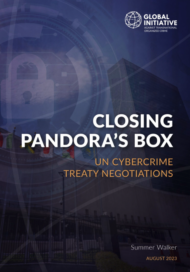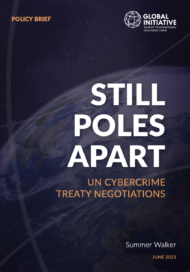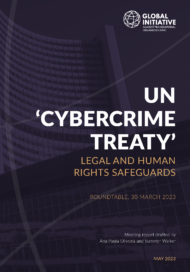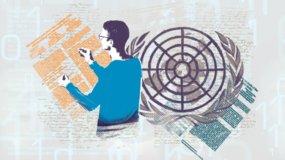Posted on 08 Sep 2023
The Global Initiative Against Transnational Organized Crime (GI-TOC) has been closely following and engaging in the ongoing process to negotiate a new cybercrime treaty at the United Nations. The Ad Hoc Committee to Elaborate a Comprehensive International Convention on Countering the Use of Information and Communications Technologies for Criminal Purposes held its penultimate session in New York at the end of August, ahead of a final scheduled session in early 2024.
The GI-TOC’s statement at the session stressed the importance of a clear and narrow scope for the ‘cyber convention’, in terms of its terminology, application and statement of purpose. These issues were further elaborated in the GI-TOC’s written contribution to the Ad Hoc Committee, which puts the case for why a well-defined scope and strong human rights safeguards are central to the chances of the state parties agreeing to a workable and implementable treaty.
As part of the final stages of the negotiations, the GI-TOC co-organized an official side event, hosted by Microsoft at its offices in New York, together with the UN Office on Drugs and Crime Civil Society Unit, the CyberPeace Institute, Access Now, the Alliance of NGOs on Crime Prevention and Criminal Justice (hereafter ‘the Alliance’), the International Chamber of Commerce and Epicenter Works.
The event featured a diverse panel of non-governmental stakeholders who presented their perspectives on the direction of the negotiations. Speakers highlighted their concerns about the potential risks of the treaty if it does not provide adequately for human rights, freedom of expression, and data sharing and protection, and consequently its ability to have a positive impact on the kind of international cooperation that is needed to combat cybercrime.
During the event, the GI-TOC’s head of Vienna multilateral representation, Ian Tennant, speaking in his capacity as Chair of the Alliance, emphasized the key role played by civil society in the work of the Ad Hoc Committee and outlined why human rights safeguards are crucial to the treaty’s chances of success.
The event was attended by 70 people in person and 50 online, including member state delegates from different regions, as well as representatives from the private sector and civil society. As the formal negotiations in the plenary continued, the event provided a much-needed opportunity for a more nuanced and policy-focused discussion. The treaty under negotiation has a unique potential to impinge on rights and freedoms, and the concerns raised by speakers at the event emphasized this point strongly to the assembled delegates at a crucial point in the negotiations.



